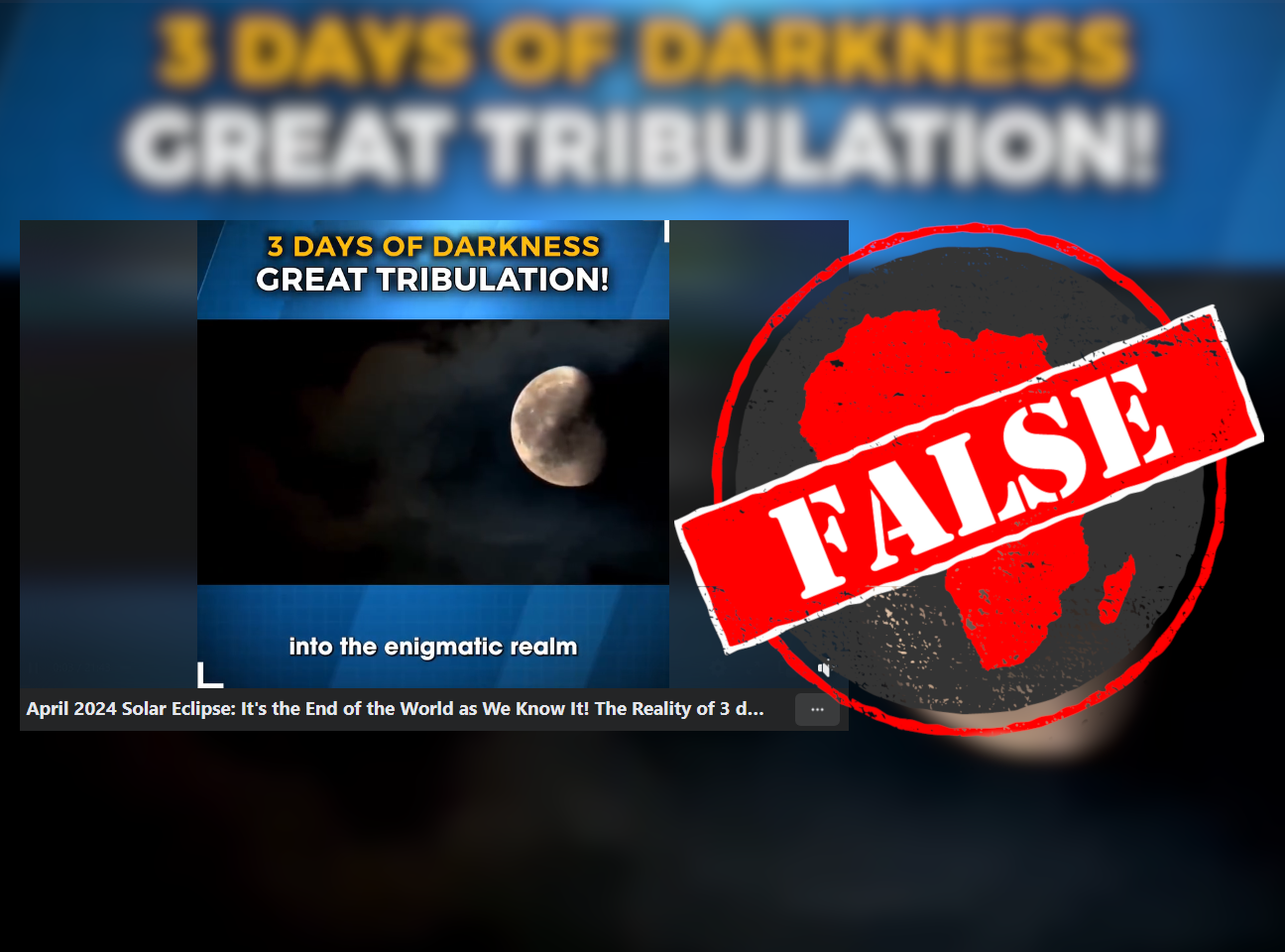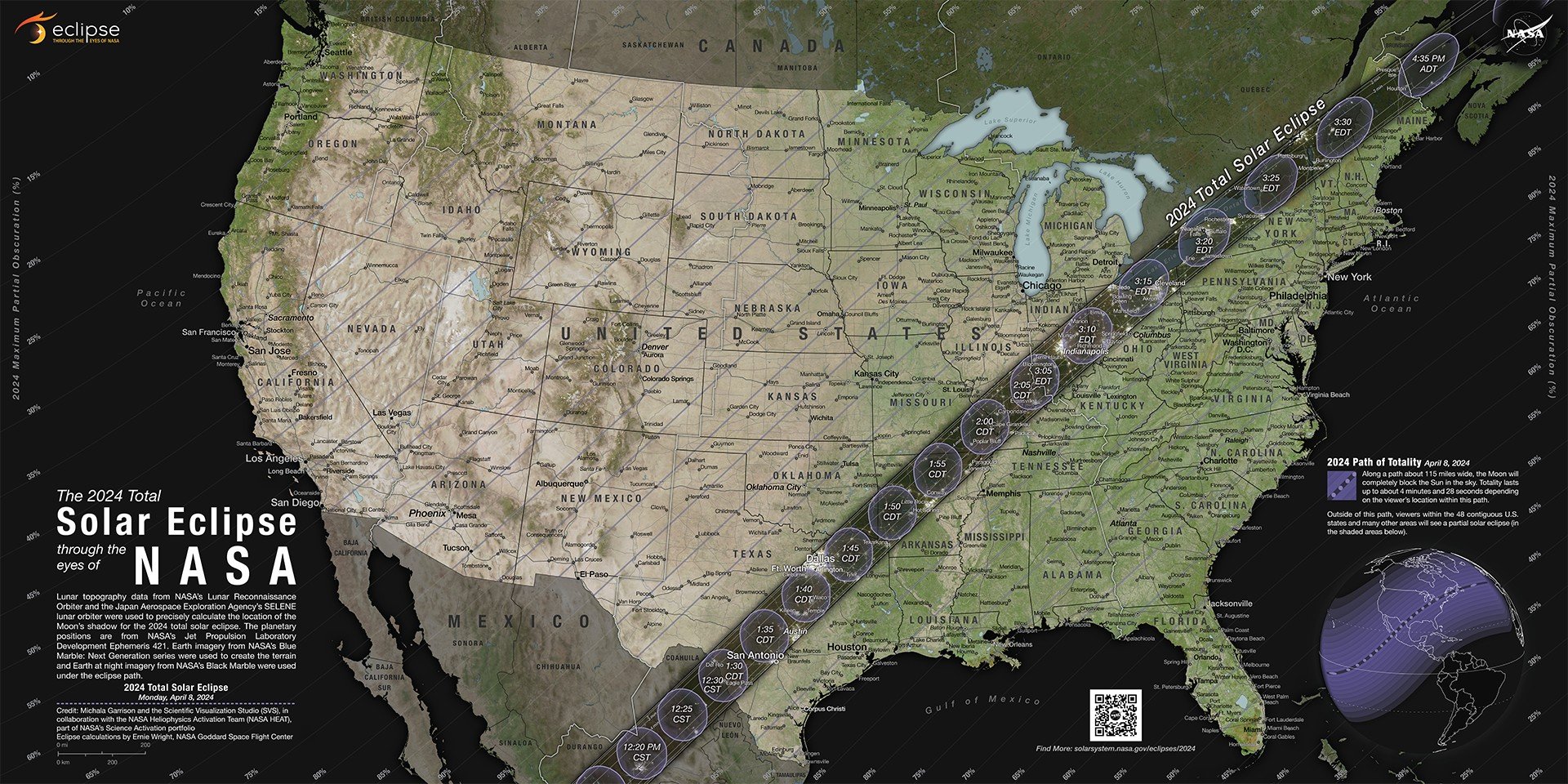IN SHORT: Social media posts claim that a solar eclipse in April 2024 will cause three days of darkness. But this is false. The eclipse will only last around four minutes and only be seen across Mexico, the US and Canada.
Videos doing the rounds on Facebook in South Africa claim that an upcoming solar eclipse is going to cause three days of darkness.
“April 2024 Solar Eclipse- It's the End of the World as We Know It! The Reality of 3 days of Darkness,” one caption reads. “3 DAYS OF DARKNESS SOON,” reads another.
A solar eclipse occurs when the moon moves between the earth and sun, which causes a shadow to sweep across parts of the earth’s surface.
Other videos, with thousands of views on the social media platform, draw comparisons between this solar eclipse and an excerpt from the book of Exodus in the Bible. These verses describe three days of darkness in Egypt as the “ninth plague” that God brought down on the Egyptians.
The claim was also sent to Africa Check multiple times by subscribers to our WhatsApp lines, with subscribers asking whether the 2024 eclipse will really cause darkness for three days. So, will there be a solar eclipse on 8 April, who will see it and will it cause darkness for three days?
We shed some light on the facts.

April’s eclipse will pass over Mexico, US and Canada
The US government’s National Aeronautics and Space Administration, more commonly known as Nasa, has reported that a total solar eclipse will be visible on 8 April.
Most solar eclipses are partial, where only part of the sun is hidden by the moon. Total solar eclipses, when the moon completely covers the sun, are rare. The moon’s shadow is not very big, so there are only a few places on earth where total solar eclipses can be seen.
“You have to be on the sunny side of the planet when it happens. You also have to be in the path of the moon’s shadow,” Nasa says.
The eclipse will begin over the South Pacific Ocean and will pass over Mexico, the United States and southern Canada. You will only be able to see the eclipse from these three countries in North America.
The exact path of the eclipse can be seen below in a map created by Nasa’s Scientific Visualization Studio.

Source: Nasa’s Scientific Visualization Studio.
According to the US Naval Observatory, the solar eclipse will move along a narrow band approximately 185 km wide.
South Africa’s next total eclipse will be on 25 November 2030.
Darkness for three days? More like a short-lived four minutes
While it is true that there will be a solar eclipse on 8 April 2024, it won’t cause “darkness for three days”.
The US’s National Weather Service (NWS) says that the eclipse’s totality, when the moon will appear to completely cover the sun, will be short.
The NWS approximates that it will be the darkest for around four minutes, depending on where the eclipse is viewed from.
And data on previous solar eclipse events show that the longest recorded total solar eclipse, on 20 June 1955, lasted only seven minutes and eight seconds.
This is nowhere near a darkness for three days, like the social media posts claim.
Be wary of false claims that use sensational language, such as the phrase “it’s the end of the world as we know it”. These claims are using fearmongering to gain a wider reach.
Republish our content for free
For publishers: what to do if your post is rated false
A fact-checker has rated your Facebook or Instagram post as “false”, “altered”, “partly false” or “missing context”. This could have serious consequences. What do you do?
Click on our guide for the steps you should follow.
Publishers guideAfrica Check teams up with Facebook
Africa Check is a partner in Meta's third-party fact-checking programme to help stop the spread of false information on social media.
The content we rate as “false” will be downgraded on Facebook and Instagram. This means fewer people will see it.
You can also help identify false information on Facebook. This guide explains how.


Add new comment